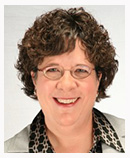In the first hour of today’s show Kerby discusses the top stories in the news in regards to the 2016 election.
In the second hour Kerby welcomes back into the studio, Dr. Kathy Koch. She discusses her book, 8 Great Smarts: Discover and Nurture Your Child’s Intelligences.

She earned a Ph.D. in reading and educational psychology from Purdue University, and was a tenured associate professor of education at the University of Wisconsin-Green Bay, a teacher of second graders, a middle school coach, and a school board member for a Christian school prior to becoming a full-time conference and keynote speaker in 1991. Kathy has written several books on parenting and successfully communicating with children.
"Smart" is a power word. Children who believe they’re smart excel more in school and approach life with greater confidence. But children who don’t can struggle to apply themselves. Do you wish your child could see how smart he or she is?
Find hope in 8 Great Smarts. You’ll be empowered and equipped with new language and creative ideas for how to:
Accept and affirm your child’s unique smarts
Motivate your child to learn and study with all 8 smarts
Reawaken any "paralyzed" smarts
Redirect misbehavior in new, constructive ways
Guide your child spiritually, relationally, and to a good career fit
Dr. Kathy Koch loves seeing children flourish and helping parents make it happen—and it’s never too late to start. Now is the time to help your child be all that God designed him or her to be.
For children of all ages, this application of the theory of multiple intelligences is a revised edition of How Am I Smart?

If you’re a parent like I am, chances are that during at least one late-night homework assignment you heard those frustrating words: “I’m just not smart enough to do this!”
It’s not hard to see how students, not to mention parents and even teachers, get this fatalistic notion about what it means to be intelligent. So much of what we call education—from classes centered on memorization, regurgitation of facts and passing tests, to forcing kids to sit still at desks for hours—favors a certain kind of student while leaving others floundering.
For example, IQ, or “intelligence quotient,” is a single number used to express how well individuals perform on a series of questions and puzzles. If you score higher than 140, you’re allegedly an Einsteinian genius. If you score lower than 75—well.
 Listen Online
Listen Online Watch Online
Watch Online Find a Station in Your Area
Find a Station in Your Area


 Watch Now
Watch Now Listen Now
Listen Now 








 Listen Now
Listen Now Watch Online
Watch Online
